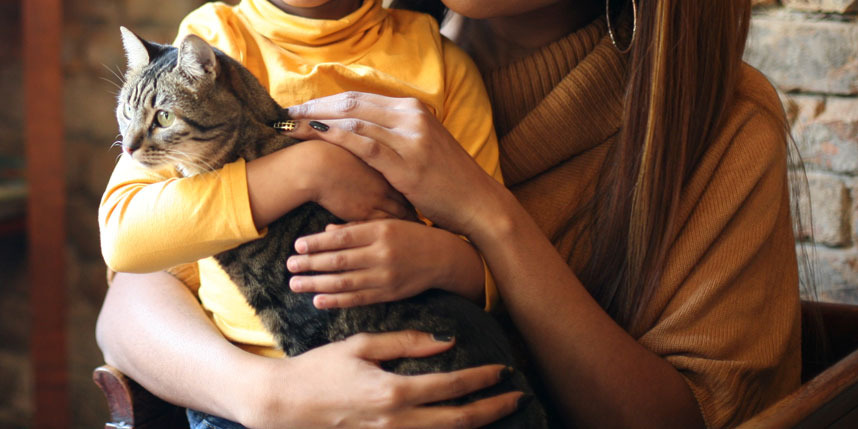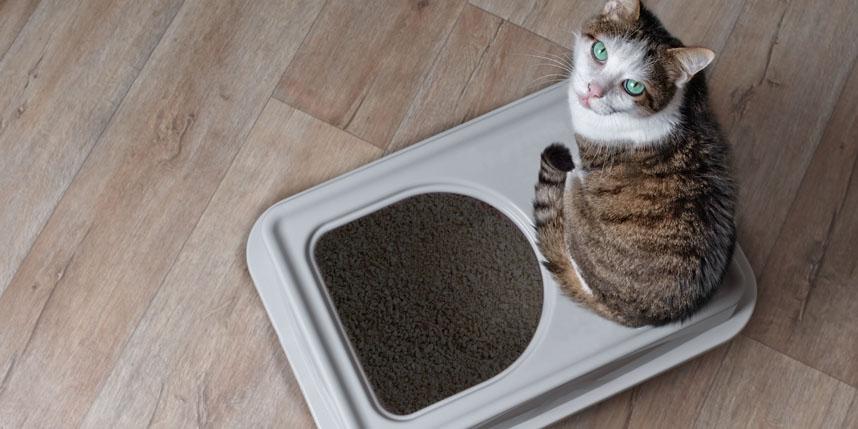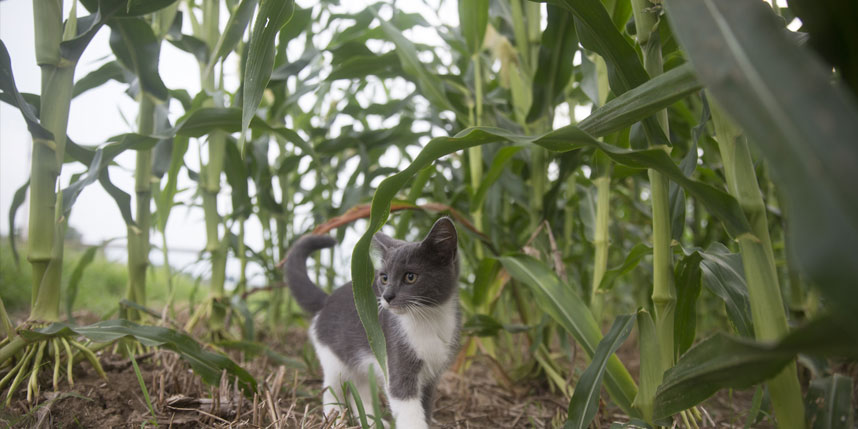THIS MIGHT BE WHY YOUR CAT HAS STOPPED USING THE LITTER BOX
Follow these four pro tips to prevent the majority of litter box issues from starting in the first place.

3 Reasons Cats Make Great Companions for Autistic Children
It’s no secret that cats do wonders for our emotional health and well-being. The human-animal bond we experience from living with and loving a cat is truly special. But a revolutionary new study conducted by researchers at the University of Missouri has shown cats make particularly great companions for children with autism — especially when it comes to improving social skills and anxiety.
Funded by our friends at HABRI (Human Animal Bond Research Institute), the new study was released in early April, just in time for Autism Awareness Month, and was conducted to raise awareness of the health benefits of pet cats and to help find more shelter cats forever homes.
Cats and Autistic Children: A First-of-Its-Kind Study
The 18-month study involved children with autism spectrum disorder (ASD) being paired with shelter cats that were pre-screened for temperament using the Feline Temperament Profile (FTP) screening tool, which is used by shelters to objectively identify cats of calm temperament to effectively place them in a suitable home. The impact on children and cats were monitored throughout the project.
Results of the study – Feline Friends Study: Benefits of Pet Cats for Children with Autism — proved there are many benefits of adopting a temperament-screened shelter cat for families of children with autism.
Top 3 Benefits of Cat Ownership for Children with Autism
The exploratory study found introduction of a cat into the home can have a positive impact on children with ASD and their parents. Here’s a few of them:

1. Improved Emotional Health
The study found that after adoption of a temperament-screened shelter cat, children experienced a variety of positive emotional health improvements, including:
- Greater empathy
- Less separation anxiety
- Less bullying
- Less hyperactivity

2. Development of a Strong Human-Animal Bond
The study also found that children and parents developed strong bonds with their new cat almost immediately after adoption, despite the added responsibility of caring for a new family member. It also determined that the bonds did not waver over time – meaning the presence of a cat in the lives of these families was consistently positive.

3. cats make it easy to care for them.
Caring for an autistic child can come with its own unique set of challenges for parents, but the study found that bringing a cat into the household did not create any undue or extra burden on the family that would impact caring for a child with autism. Aside from having to feed them, scooping and changing their litter, and giving them some love and affection — cats make it easy to care for them.
Cat lovers already know that felines make the best pets, partly because of how loving and low maintenance they can be, but the results of this new study proved even further that a cat’s quiet demeanor makes it a truly perfect companion for children with autism.
To learn more about how cats can provide much needed emotional support, read our blog on Therapy Cats. And to learn more about how HABRI is helping further the research on the human-animal bond, visit Habri.org.
Research Citations:
Carlisle, G., Johnson, R., Wang, Z., Bibbo, J., Cheak-Zamora, N., Lyons, L. (2021). Exploratory study of cat adoption in families of children with autism: Impact on children’s social skills and anxiety. Journal of Pediatric Nursing, Volume 58, Pages 28-35.
Lamontagne, A., Johnson, R. A., Carlisle, G. K., Lyons, L. A., Bibbo, J. L., Koch, C., & Osterlind, S. J. (2020). Efficacy of the Feline Temperament Profile in evaluating sheltered cats for adoption into families of a child with Autism Spectrum Disorder. Animal Studies Journal, 9(2), 21-55.]




